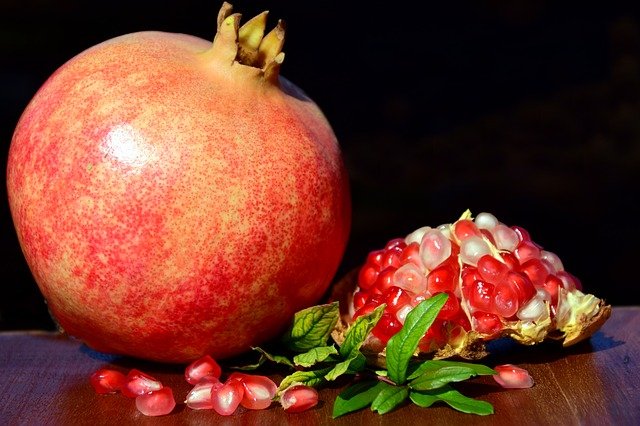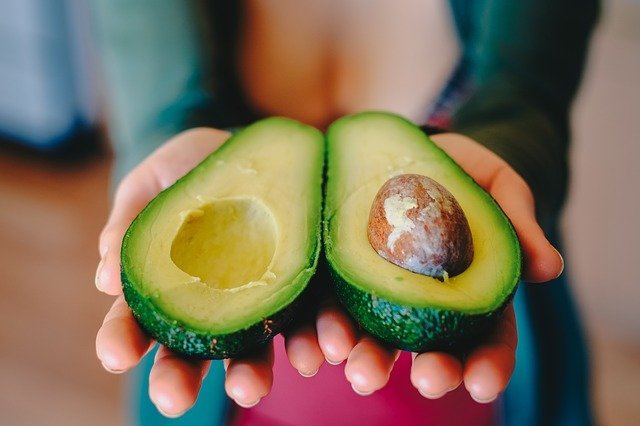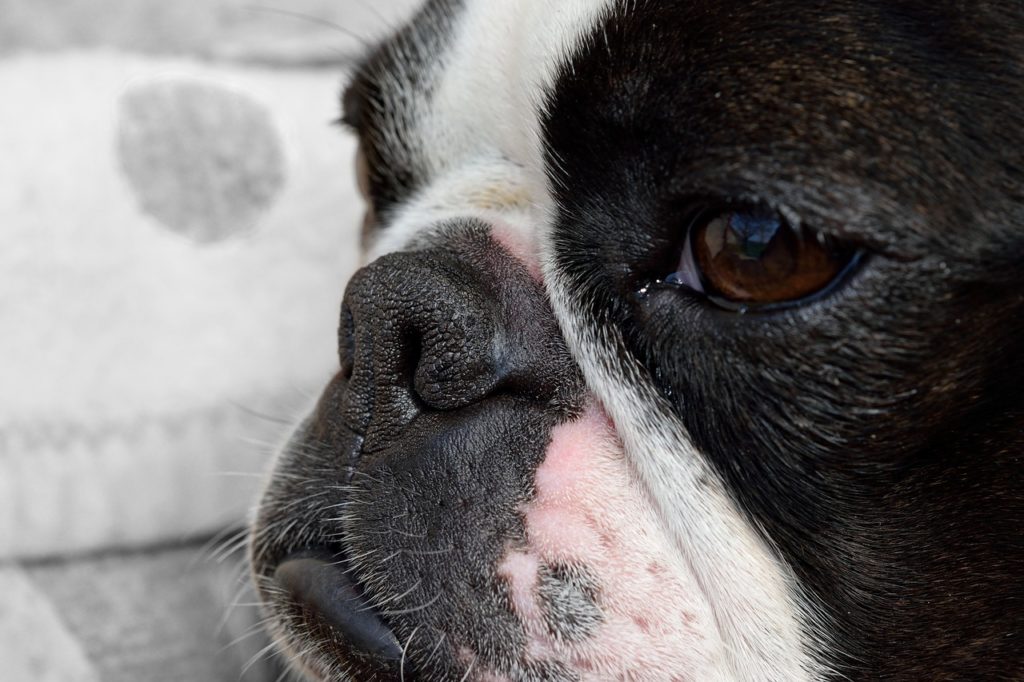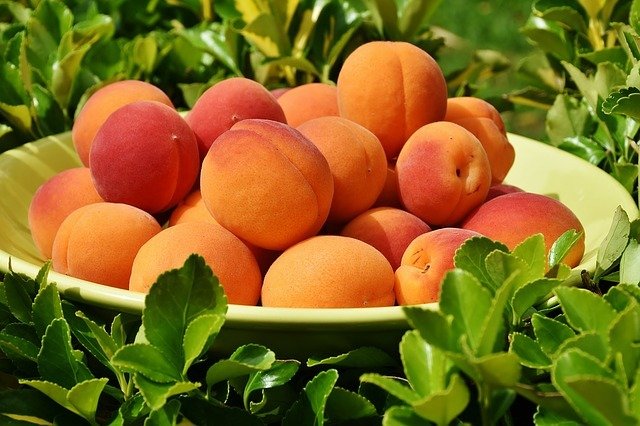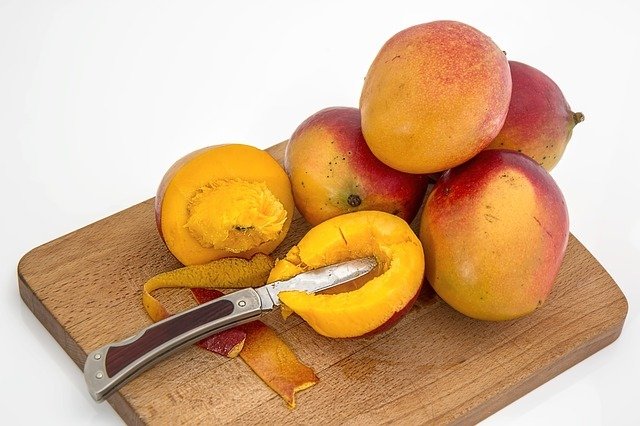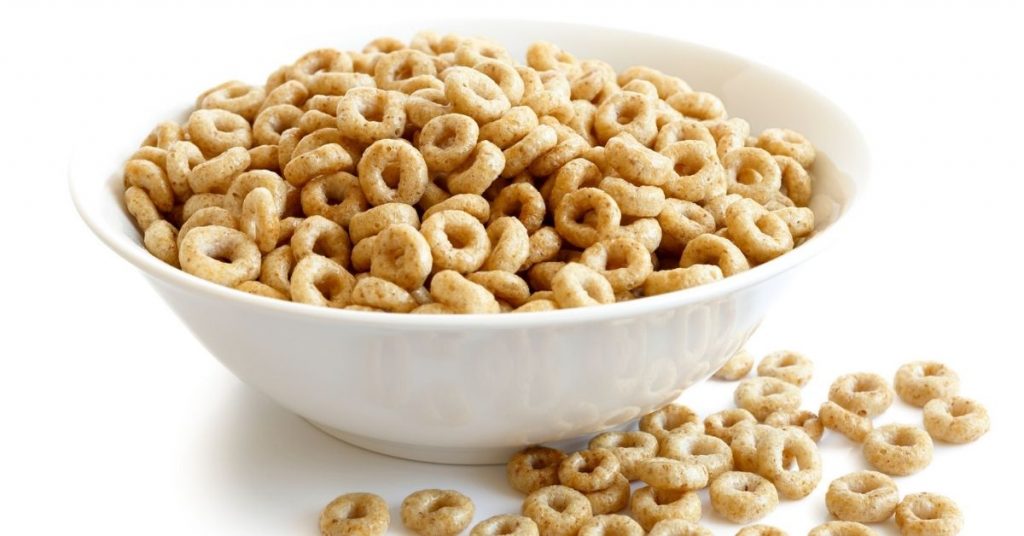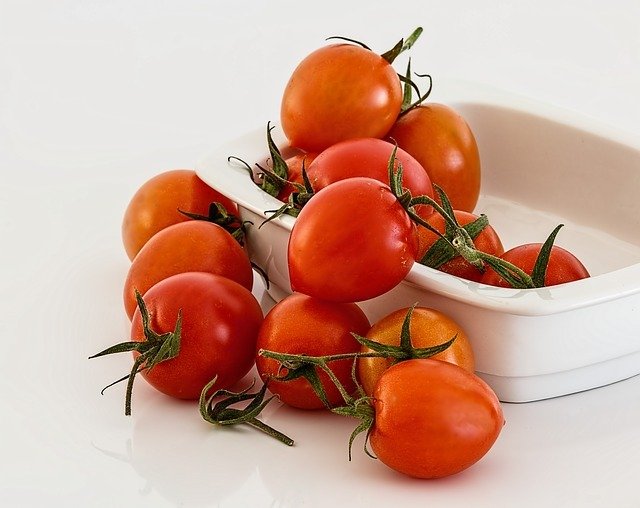Can Dogs Eat Apples?

It turns out that many fruits and vegetables are a safe and nutritious treat for your dog.
So to answer the question, can dogs eat apples is YES! They can feed on apples.
Apples contain a vast amount of vitamins, carbohydrates, fibers, and antioxidants, which boosts the dog’s immune system and aids the digestive system.
Apples are also a great source of phosphorus and calcium, responsible for strong bone formation and energy.
However, you should give apples as a treat or a snack in moderation. The stem and seeds of the apple should be removed when feeding them to your dog since they can cause a choking hazard and can have a toxic effect on dogs when taken in large amounts. More on that later.
So don’t feed the dog the whole apple to your dog. Remove what needs to be removed instead of taking chances. If a dog shows any signs of allergies, do not feed it apples.
Are Apples Safe For Dogs To Eat?
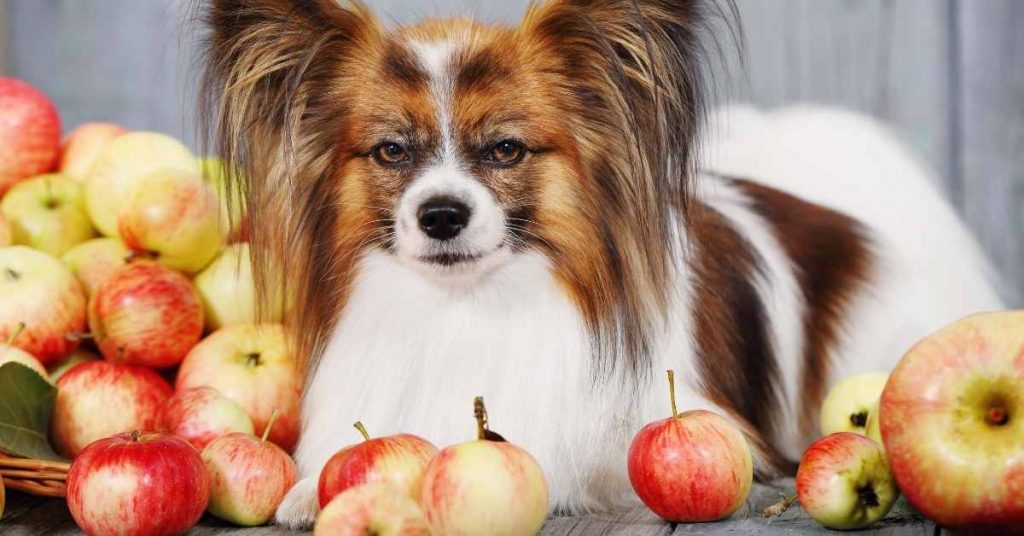
All varieties of apples present in the grocery shops are safe for dogs. The Granny Smith, gala, honey crisp, and red-delicious are examples of these apples.
The recommended way of feeding them to the dog is as follows:
Wash the fruit thoroughly, cut it by either slicing it into bite-sized or dicing it into chewable cubes.
Remove the stem, and seeds to avoid intoxication and choking effects.
You can also mix it with your dog’s food or you can even make a refreshing apple juice for them.
This preparation ensures a healthy treat for your dog and makes the apple utterly safe for the dog.
Beware that too much apple consumption results in an upset stomach. Save your dog that trouble, one apple is enough. After all, too much of anything no good.
Can Dogs Eat The Skin Of An Apple?

YES! But in large amounts, it can result in stomach upsets. They should be fed to dogs moderately or occasionally as a form of a treat.
Below are some of the healthy benefits associated with the apple’s skin.
Vitamin Nutrients: They are very healthy and nutritious containing Vitamin A, that aids in strengthening the immune system. Vitamin C is for healthy bone formation and muscle development, and Vitamin K is responsible for the dog’s blood health and liver formation.
Boosts Dental Hygiene: The apple skin acts like a toothbrush, a cleaning agent to the dog’s dental hygiene, and gives your dog a fresh breath.
When your dog is chewing the apples, the apples will rub against the surface of its teeth, thus removing harmful plaque and tartar buildup.
Fights Cancer: It has phytonutrients, a plant nutrient designed to fight against various carcinogenic effects by inhibiting cancer cells and/or killing them. Apart from that apples contain dietary fibers which is also a factor in preventing cancer.
Rich in Fiber: As stated above apples contain fiber. These fibers generally aid the dog’s digestion. They increase water and bulk present in intestinal contents, resulting in a steady and regular bowel movement. This is because apples are high in soluble fiber.
Weight Benefit: The apple skin contains ursolic acid, a compound responsible for keeping the dog’s weight in check. It can sustain a dog through meals, thus helping it curb its appetite.
It also lowers the rate of sugar absorption in the blood with the help of the apple’s pectin hence ensuring low amounts of cholesterol in the body. That is beneficial to the heart because it allows more effortless blood movement through your dog’s veins.
Can Dogs Eat Apple Seeds?

Apple seeds contain a compound known as amygdalin that converts to hydrogen cyanide when consumed, of which the cyanide is toxic. These can be very poisonous if ingested in large amounts.
It means that a few apple seeds will not kill your dog. Though after much consumption of these seeds, the intoxicating effect will kick in.
So, why not remove the seeds rather than risking your dog’s life?
Related: Can Dogs Eat Apple Sauce?
Wrapping Up
From the above information, it’s clear an apple is an alright treat to the dog when taken in moderation. Apart from that, you should ensure you cut the apple in small sizes and remove the seed to prevent the dog from choking and getting stomach upsets from the seeds.



